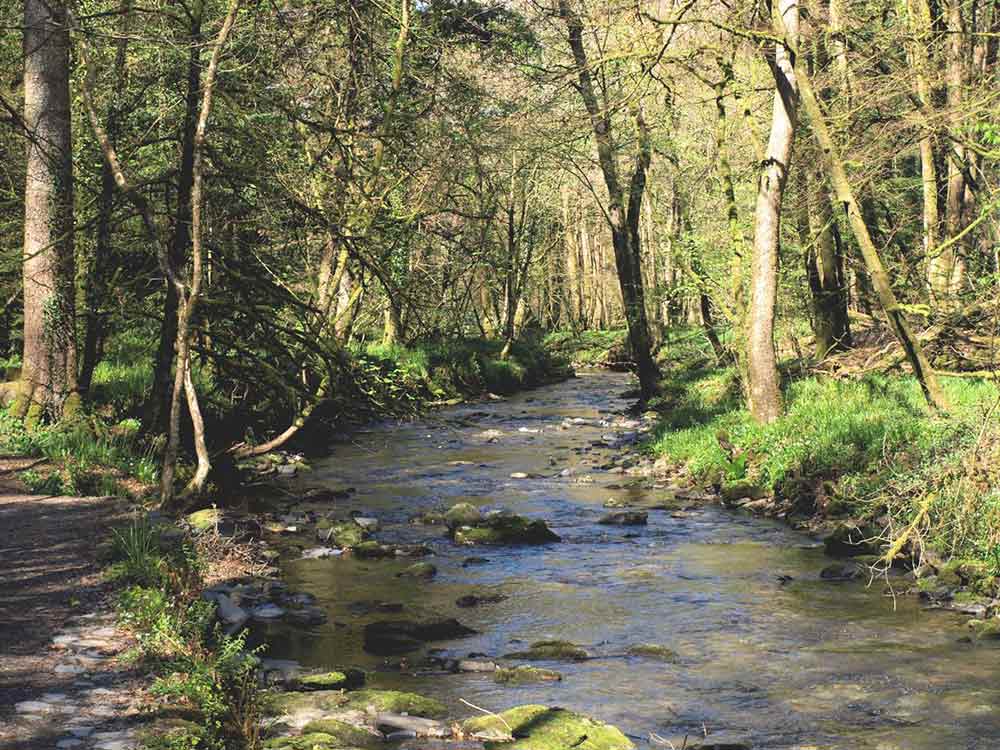KNOWLES THE WEAVER
THE END OF A GREEDY WORKAHOLIC
Med THEATRE's VERSION
Knowles was a rich weaver, whose money had been made by charging exorbitant amounts for finished items of cloth and buying wool from the local cottagers at knockdown prices. As a result he was very unpopular in the village of Dean Combe where he lived and worked. When he died, only his son grieved for him. On the evening after his burial in the church graveyard, Knowles’ son was passing his father’s house in the street when he happened to glance up. There, at an upper window, he could see, silhouetted against the light from an oil lamp, a figure still working away at a loom. As he stared and stared, he realised it was none other than the figure of his father. He called up to him, but the figure gave no reply. At a loss, the son went off to find the vicar. In his turn, the vicar called up to the figure working at the window.
‘Knowles, what do you think you are doing still working after your death? Come down immediately and return to your grave.’
But still the figure gave no reply and continued working. Eventually the vicar came up with a plan. He summoned several cottagers from their homes and asked them to bring wool with them. Then he called up to Knowles again and told him that there was wool for sale in the street at an unheard of low price. Knowles could not resist this offer and finally leaving his loom he began to descend the stairs. The vicar was ready for him. As soon as Knowles’ ghost opened the door expecting to drive the best bargain he had ever made, the vicar bent down and gathered up a handful of dust which he threw in Knowles’ face.
At once the ghost of Knowles was transformed into a black hound, which the vicar led to a pool in the nearby Dean Burn. There he gave the hound an acorn cup with a hole in it, and commanded the phantom animal not to move from the spot until it had emptied the pool. And on moonlit nights, the black hound can still be seen about its eternal task. As a result, the pool is called Hound Pool.
Video of a ‘black hound’ endlessly digging in Hound Pool for stones. Will this hound ever manage to empty the pool entirely?

Photos by Lucy Edmonds
VERSION FROM 1850
Devon and Cornwall Notes and Queries, Number 61 (28 December 1850):
In the parish of Dean Prior is a narrow wooded valley, watered by a streamlet, that in two or three places falls into cascades of considerable beauty. At the foot of one of these is a deep hollow called the Hound’s Pool. Its story is as follows.
There once lived in the hamlet of Dean Combe a weaver of great fame and skill. After long prosperity he died, and was buried. But the next day he appeared sitting at the loom in his chamber, working diligently as when he was alive. His sons applied to the parson, who went accordingly to the foot of the stairs, and heard the noise of the weaver’s shuttle in the room above.
“Knowles!” he said, “come down; this is no place for thee.”
“I will,” said the weaver, “as soon as I have worked out my quill,” (the “quill” is the shuttle full of wool).
“Nay,” said the vicar, “thou hast been long enough at thy work; come down at once!”– So when the spirit came down, the vicar took a handful of earth from the churchyard, and threw it in its face. And in a moment it became a black hound. “Follow me,” said the vicar; and it followed him to the gate of the wood. And when they came there, it seemed as if all the trees in the wood were “coming together,” so great was the wind. Then the vicar took a nutshell with a hole in it, and led the hound to the pool below the waterfall. “Take this shell,” he said; “and when thou shalt have dipped out the pool with it, thou mayst rest–not before.” And at mid-day, or at midnight, the hound may still be seen at its work.
